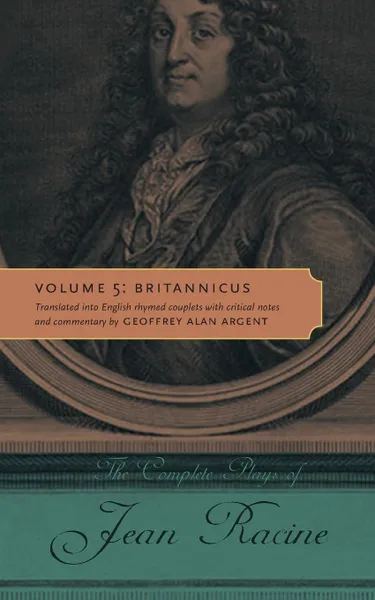The Complete Plays of Jean Racine. Volume 5: Britannicus 14+
Автор: Jean Racine,
Geoffrey Alan Argent
2014
248 страниц
Категория: Литература на иностранных языках
ISBN: 9780271064079
Язык: Английский
📙 This is the fifth volume of a projected translation into English of all twelve of Jean Racine's plays. Geoffrey Alan Argent's translations faithfully convey all the urgency and keen psychological insight of Racine's dramas, and the coiled strength of his verse, while breathing new vigor into the time-honored form of the "heroic" couplet. Complementing this translation are the Discussion and the Notes and Commentary-particularly detailed and extensive for this volume, Britannicus being by far Racine's most historically informed play. Also noteworthy is Argent's reinstatement of an eighty-two-line scene, originally intended to open Act III, that has never before appeared in an English translation of this play. Britannicus, one of Racine's greatest plays, dramatizes the crucial day when Nero-son of Agrippina and stepson of the late emperor Claudius-overcomes his mother, his wife Octavia, his tutors, and his vaunted "three virtuous years" in order to announce his omnipotence. He callously murders his innocent stepbrother, Britannicus, and effectively destroys Britannicus's beloved, the virtuous Junia, as well. Racine may claim, in his first preface, that this tragedy "does not concern itself at all with affairs of the world at large," but nothing could be further from the truth. The tragedy represented in Britannicus is precisely that of the Roman Empire, for in Nero Racine has created a character who embodies the most infamous ...
Мнения
